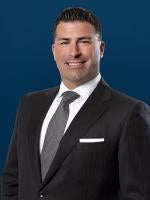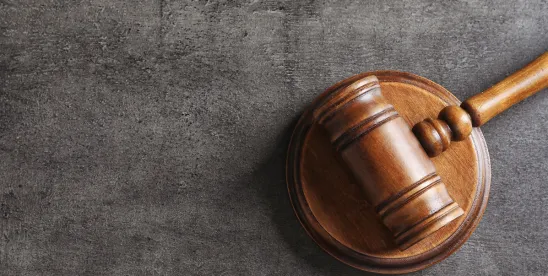In criminal cases, oftentimes the most significant element in dispute is whether the defendant harbored the intent to “knowingly” or “willfully” violate the criminal law at issue. If the defendant denies that he knew what he was doing was illegal, the government must prove beyond a reasonable doubt that the defendant had the required mens rea — or mental state — to violate the law. The government does this by presenting circumstantial evidence that it argues supports a reasonable inference that the defendant had the required mental state to violate the law. And defense lawyers test that evidence largely on cross examination and by presenting counterevidence.
The more complicated the law — think tax, securities, or federal election conduit contribution laws — the riskier it is that a person can be held criminally liable for what seemed like innocent or at least not illegal conduct. In these cases, experts may be called to testify about how a certain industry or regulatory regime is structured or how it operates, and the parties can argue to the jury whether the facts of the case circumstantially prove the reasonable inference that the defendant knowingly or willfully violated a criminal law related to that industry or regulatory regime. But Federal Rule of Evidence 704(b) prohibits an expert from stating an opinion about whether a criminal defendant “did or did not have the mental state or condition that constitutes an element of the crime charged or of a defense. Those matters are for the trier of fact alone.” FRE 704(b) was adopted in response to President Ronald Reagan’s shooter, John Hinkley, being found not guilty by reason of insanity after competing experts offered opinions on the ultimate issue of Hinkley’s sanity. So FRE 704(b) now requires that a jury alone must decide whether the defendant intended to commit a crime. And the answer to this question is often the difference between freedom or years in prison.
In Diaz v. United States, ___ S. Ct. ___, 2024 WL 3056012 (June 20, 2024), the U.S. Supreme Court ruled that FRE 704(b) does not preclude expert testimony about the likelihood that the defendant intended to commit a crime based on the defendant’s membership in a particular group. Diaz was charged with “knowingly” transporting drugs across the U.S.-Mexican border. She argued the “blind mule” defense: she did not know there were drugs in the car, therefore she did not knowingly transport them. The government called as an expert a Homeland Security Investigations Special Agent to testify that “in most circumstances, the driver knows they are hired to take drugs from point A to point B.” The Agent said that drug-trafficking organizations would expose themselves to too much risk by using unknowing couriers. The Agent admitted on cross examination that he was not involved in Diaz’s case, and that drug-trafficking organizations sometimes use unknowing couriers. The jury found Diaz guilty and she was sentenced to 84 months in prison.
Diaz argued that the Agent’s expert testimony violated FRE 704(b)’s proscription of expert’s providing opinions about whether a defendant did or did not have the required state of mind to violate the law. The Court affirmed the Ninth Circuit’s opinion that the Agent’s expert testimony did not violate FRE 704(b) because the expert “did not express an opinion about whether Diaz herself knowingly transported [drugs].” Instead, he testified that “most” drug couriers know they are hired to drive drugs from point A to point B. “That opinion does not necessarily describe Diaz’s mental state. After all, Diaz may or may not be like most drug couriers.” The Court acknowledged that it would have violated Rule 704(b) if the Agent had testified that “all” drug couriers know they are transporting drugs, since Diaz would be included in that drug courier group thus making it an opinion about Diaz’s mental state.
The Court said that FRE 704(b) only proscribes expert opinions “in a criminal case that are about a particular person (‘the defendant’) and a particular ultimate issue (whether the defendant has ‘a mental state or condition’ that is ‘an element of the crime charged or of a defense.’).” Because the Agent “did not give an opinion ‘about whether’ Diaz herself ‘did or did not have a mental state or condition that constitutes an element of the crime charged or of a defense,’ his testimony did not violate Rule 704(b).”
In her concurrence, Justice Ketanji Brown Jackson inferred that “what’s good for the goose is good for the gander” when she wrote that criminal defendants were now free to offer expert testimony “‘on the likelihood’ that the defendant had a particular mental state, ‘based on the defendant’s membership in a particular group.’” For example, “Diaz could have offered expert testimony on the prevalence and characteristics of unknowing drug couriers.” Justice Jackson said that the Diaz opinion will now allow psychiatrists to testify as experts “to tell the jury that when people with schizophrenia as severe as a defendant’s commit acts of violence, it is generally because they do not appreciate the wrongfulness of their conduct.” This would not create a “spectacle of dueling experts on the defendant’s mental state,” Justice Jackson wrote, but instead “could help jurors better understand a defendant’s condition and thereby call into question a mens rea that might otherwise be too easily assumed…given the biases, stereotypes, and uneven knowledge that many people have about mental health conditions.”
Justice Neil Gorsuch wrote a terse dissent that was joined by Justices Sonia Sotomayor and Elena Kagan. The dissent said the Agent’s probabilistic assessment that “most” couriers know they are transporting drugs violated FRE 704(b) because it was a statement “about whether the defendant” had a “mental state . . . that constitutes an element of the crime charged.” The word “about” is defined as “concerning, regarding, with regard to, with reference to; in the matter of.” And according to the dissent, expert testimony about what most drug couriers know was testimony about the likelihood of what Diaz knew. Justice Gorsuch warned of “warring experts” on the issue of a defendant’s intent, which he says will make the criminal justice system less reliable as lawyers may try and find probabilistic expert opinions on intent rather than doing the hard work of gathering circumstantial evidence and arguing about what that evidence reasonably infers about a defendant’s intent.




 />i
/>i
